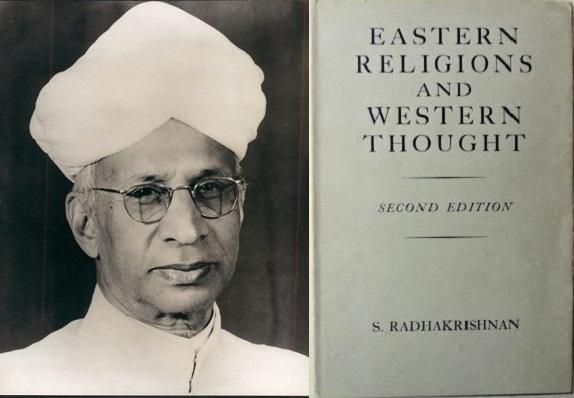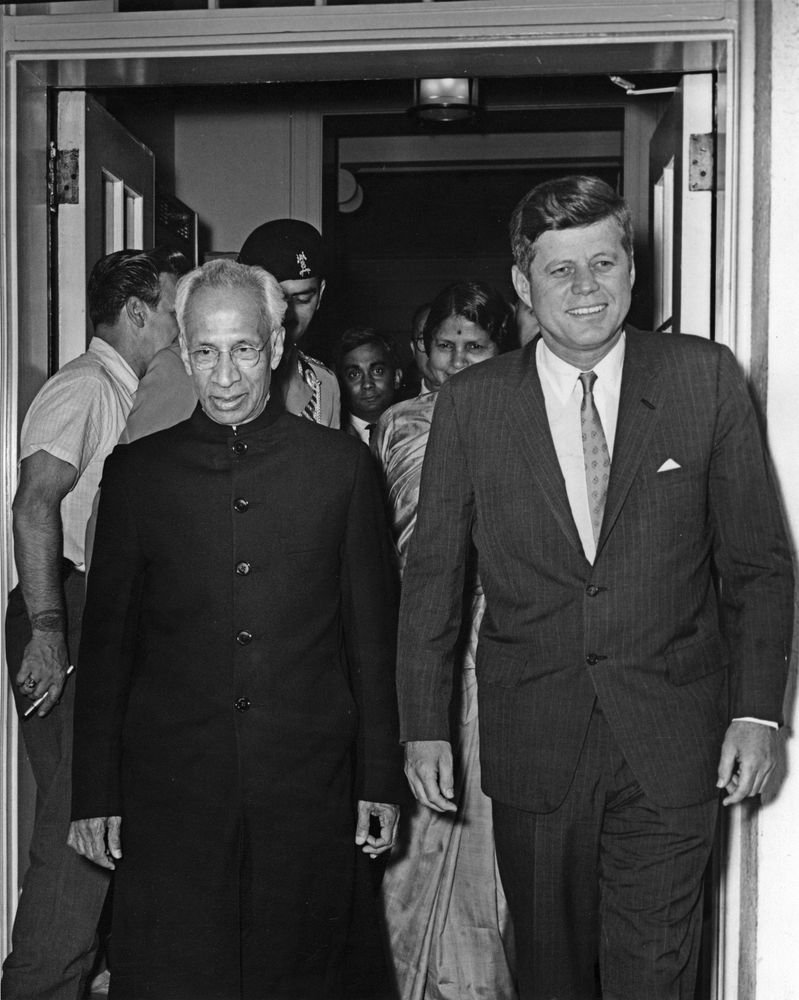
Eastern Religions and Western Thought (1939), Oxford University Press, 396 pages

Lectures were given in the years 1936-8 when Radhakrishnan was named Spalding Professor of Eastern Religions and Ethics at the University of Oxford.
“To-day the soul of man no longer rests upon secure foundations. Everything round him is unsteady and contradictory.”
PREFACE
MODERN civilization with its scientific temper, humanistic spirit, and secular view of life is uprooting the world over the customs of long centuries and creating a ferment of restlessness. The new world cannot remain a confused mass of needs and impulses, ambitions and activities, without any control or guidance of the spirit. The void created by abandoned superstitions and uprooted beliefs calls for a spiritual filling.
The world has found itself as one body. But physical unity and economic interdependence are not by themselves sufficient to create a universal human community. For this we require a human consciousness of community, a sense of personal relationships among men. Though this human consciousness was till recently limited to the members of the political States, there has been a rapid extension of it after the War. The modes and customs of all men are now a part of the consciousness of all men. Man has become the spectator of man. A new humanism is on the horizon. But this time it embraces the whole of mankind. An intimate mutual knowledge between peoples is producing an enrichment of world-consciousness. We can no more escape being members of a world community than we can jump out of our own skin. Yet to our dismay we find that the world is anarchical and unruly. Its mind is in confusion; its brain out of hinge. More than ever before, the world is to-day divided and affiicted by formidable evils. The cause of the present tension and disorder is the lack of adjustment between the process of life, which is one of increasing inter-dependence, and the ‘ideology’ of life, the integrating habits of mind, loyalties, and affections-embodied in our laws and institutions. Education, which has for its aim the transmis- sion not only of skills and techniques, but of ideals and loyalties, of affections and appreciations, is busy in the new world with the old ideals of national sovereignty and economic self-suficiency. The present organization of the world is inconsistent with the Zeitgeist shining on the distant horizon as well as the true spirit of religion. To say that there is only one God is to affirm that there is only one community of mankind.



Chapter One







































